2019.07.03 CoStone Capital 浏览次数:
On June 1, the twentieth CoStone Master Forum themed with "Economic Transformation & Business Revolution" kicked off at the world's highest concert hall the Sky Concert Hall, located at the T7 building of One Shenzhen Bay in Shenzhen. Dr. Jia Kang and six other speakers from the academic and business circles were invited to share their views on business revolution.
On June 1, the twentieth CoStone Master Forum themed with "Economic Transformation & Business Revolution" kicked off at the world's highest concert hall the Sky Concert Hall, located at the T7 building of One Shenzhen Bay in Shenzhen. Dr. Jia Kang and six other speakers from the academic and business circles were invited to share their views on business revolution.
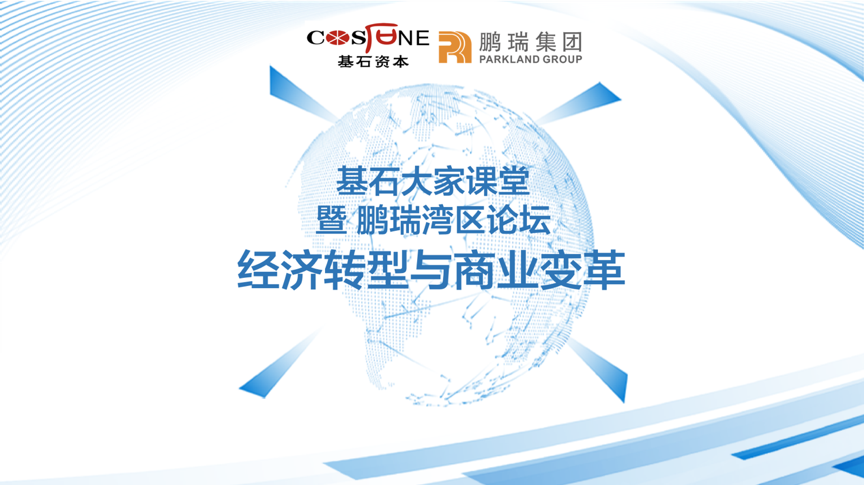
Dr. Jia Kang, Chief Economist of the China Academy of New Supply-side Economics and Former Director of the Chinese Academy of Fiscal Sciences, and Mr. Chen Weiru, Director of Alibaba Industry Internet Research Center and Professor at Hupan University, made the opening speeches. Later, Zhang Wei, Chairman of CoStone Capital, Xu Hang, Chairman of the Board of Parkland Group, Xu Dingbo, Professor and Deputy Provost at the China Europe International Business School (CEIBS), and representatives of CEIBS CEO Class 5, including Chen Fashu, Chairman of New Huadu and Yunnao Baiyao Group, Wang Shuifu, Chairman of Xizi UHC, and Jiang Xipei, Chair of the Board of Far East Holding Group, gave speeches on relevant topics.
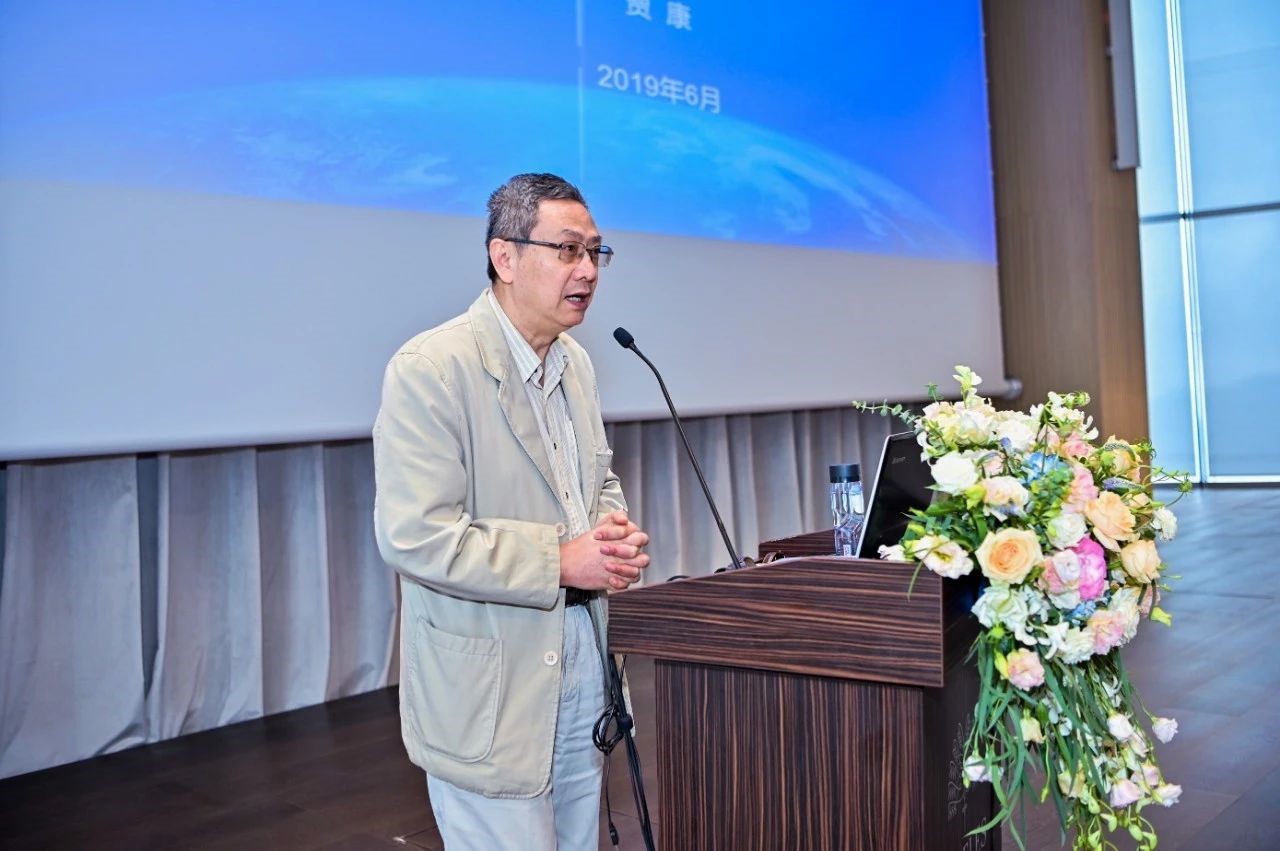
Dr. Jia Kang on The Current Economic Situation & The Global Trend and Corporates' Opportunities
Dr. Jia made an in-depth analysis of the current economic situation, the global trend and corporates' opportunities. His speech consisted of four parts: the change in China's principal contradiction and the supply-side structural reform; China's macro economy and feasible approaches to the development; China's relations with the international community and how to handle Sino-US relations; corporates' ways of investing under the New Normal.
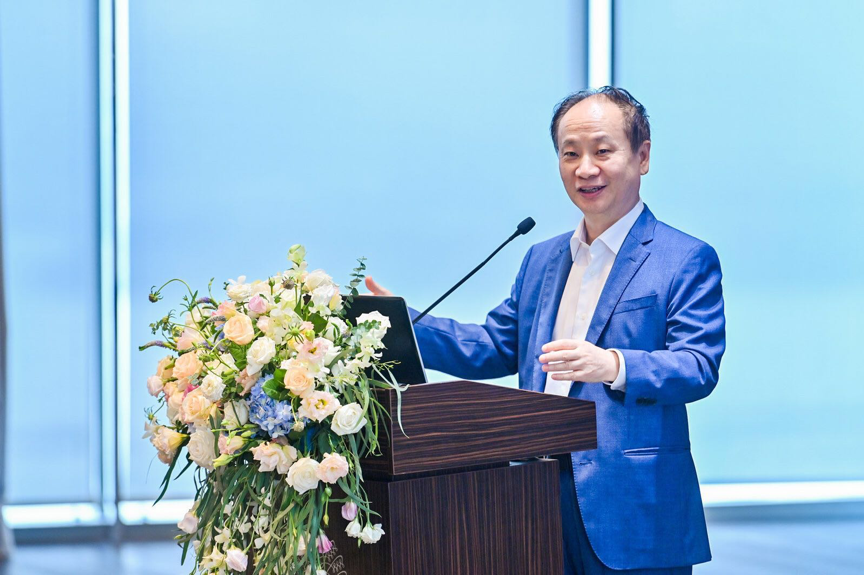
Xu Hang making an opening speech
After looking back on how he started Mindray and Parkland, Mr. Xu offered his insights into the development of China and enterprises, and the trade war between China and the United States. In his opinion, the reform and opening up, the market economy and the government's support for people pursuing a better life have made China's success. He stressed that to start a business, one must stay optimistic, have a vision, and dare to take risks.
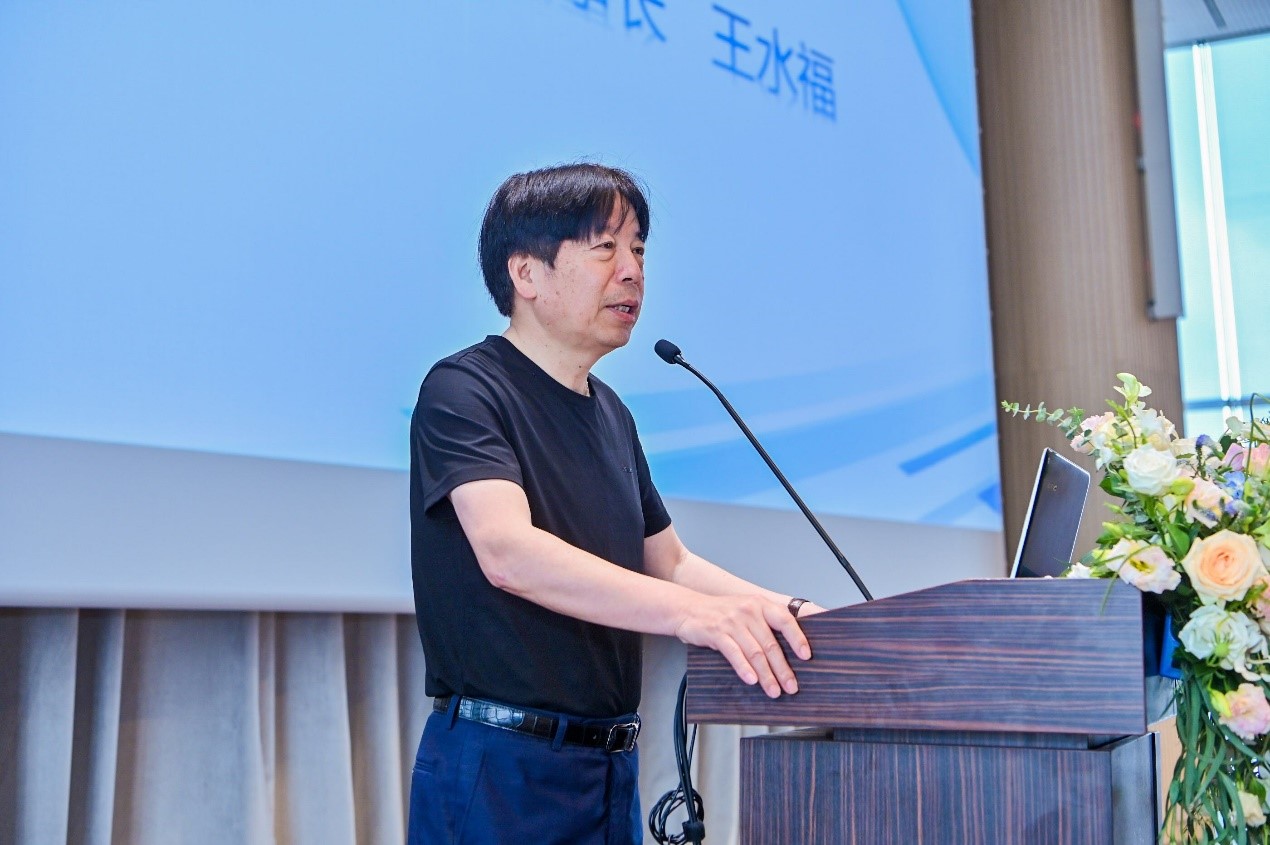
Wang Shuifu making a speech
Mr. Wang told his story of producing farm machinery parts and of how he ended up making aircraft parts, including those of COMAC(C919), Airbus, Boeing and Bombardier. As he said, the aviation industry, which seems to be an industry with enormous risks, is actually a very safe one as it has extremely strict requirements for product quality. He also pointed out that China should learn from Japan and Korea and create national automobile brands to upgrade the manufacturing industry. Jiangsu, Zhejiang and Shanghai’s rich resources could be fully utilized for building such a high-end national automobile brand, said Mr. Wang.
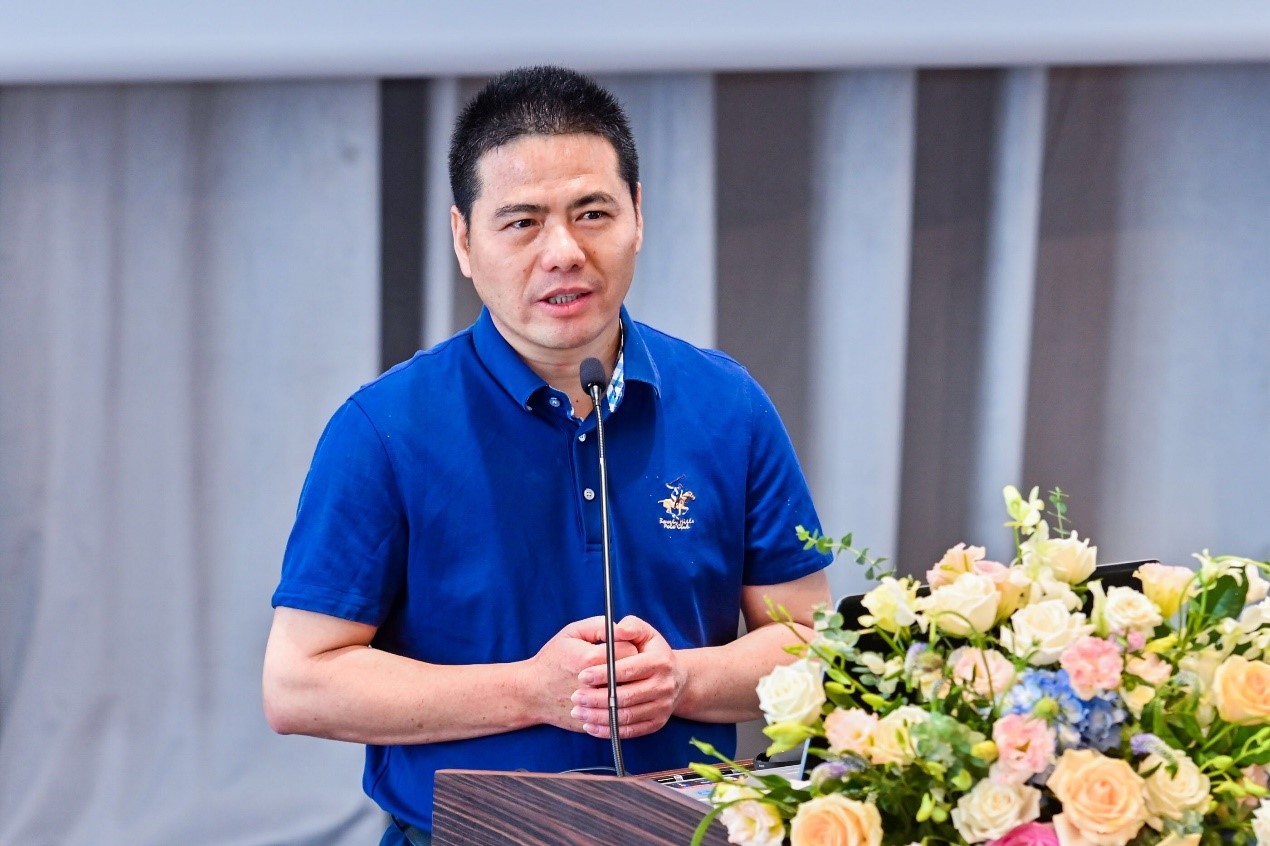
Jiang Xipei making a speech
Mr. Jiang expressed his thoughts on the new era. He held the belief that the competition among entrepreneurs would take up a large part of the competition in the future and that the Chinese government should give strong support to excellent Chinese enterprises in taking part in global competition. To put it specifically, private companies should be empowered, strong measures against fake and shoddy goods should be taken, and taxes and fees imposed on enterprises should be reduced. In the new era of commerce, entrepreneurs and individuals must establish a new commercial civilization, do good for others, which will in return give back benefits, build up confidence, and uphold a strong belief, added Mr. Jiang.
Speaker
Dr. Jia Kang
Dr. Jia Kang is a member of the National Committee of the CPPCC, and Distinguished Professor at Peking University, the Remin University of China and Wuhan University. Supported by the Heinz Program, he served as Visiting Professor at the University of Pittsburgh for one year in 1988. He is also the recipient of the Sun Yefang Economics Prize, the Mundell-Huangda Prize and the China Soft Science Prize. He once held the position of Director of the Chinese Academy of Fiscal Sciences for a long time. In 2013, Dr. Jia, acting as Director and Secretary General, initiated and set up the China Academy of New Supply-side Economics and the China New Supply-side Economist 50 Forum, aiming for building a think tank and a platform for interdisciplinary and cross-department academic exchanges.
Prof. Chen Weiru
Holding a PhD in Strategic Management from Purdue University, Dr. Chen Weiru is Professor of Strategy at CEIBS. Dr. Chen's interest areas of teaching include industry and competition analysis, business model innovation, and strategy of China. Before joining CEIBS, he taught strategy at INSEAD. He earned the Best Teaching Prize from the Krannert School of Management, Purdue University in 2002, the INSEAD MBA's Best Teacher Award in 2005, the INSEAD Deans' Commendation for Excellence in Teaching in 2011, and the CEIBS Best Teaching Prize in 2013.
Xu Hang
After graduating from the Department of Computer Science, Tsinghua University, Xu Hang was admitted to the Department of Electrical Engineering for studying biomedical engineering in 1984, and then he obtained his EMBA from CEIBS in 2002. He is the recipient of the 2005 Shenzhen Mayor Award and the initiator of Pengrui Qihang Public Welfare Foundation. Xu Hang used to be Chairman of Mindray and now he has joined Parkland Group as Chairman of the Board. He is also a member of the Governing Board of the Chinese University of Hong Kong, Shenzhen. Xu Hang ranked the fourth on the Forbes China's List of China's 50 Richest People in Healthcare with a fortune of $16.3 billion on August 3, 2020.
Wang Shuifu
Being an ordinary worker at the beginning, Wang Shuifu now is Chairman of Xizi UHC, Member of the Council of the China Elevator Association, and Deputy to the 13th People's Congress of Zhejiang Province. He ranked the 531th on the 2019 LEXUS•Hurun China Rich List with a fortune of ¥7.5 billion (approx. $1.15 billion) and the 2276th on the Hurun Global Rich List 2020 with a fortune of ¥8 billion (approx. $1.2 billion).
Prof. Xu Dingbo
Xu Dingbo is Professor of Accounting and Deputy Provost at CEIBS and Secretary General of the CEIBS Education Development Foundation. Prof. Xu once joined PICC as Director of the Board. Now he holds positions of Vice Chairman of the China Association of Chief Financial Officers and Executive Director of the Editorial Board of China Management Accounting Review.
Chen Fashu
Chen Fashu is the founder and Chairman of New Huadu, Vice Chairman of Wuyishan Travel, Chairman of Zijin Mining, and Honorary Member of the Board of Peking University. He ranked the 77th on the 2020 New Fortunes 500 Richest Chinese People List with a fortune of ¥30.05 billion (approx. $4.58 billion).
Jiang Xipei
Jiang Xipei is Chair of the Board of Far East Holding Group, a senior economist, Deputy to the 16th CPC National Congress, and Vice Chairman of the Global Alliance of SMEs, the Asian Manufacturing Association and the China Enterprise Directors Association. He is the recipient of the titles of Top 10 Private Entrepreneurs in China and Champion in China's Industrial Sector.
Rewritten by Jiang Xiaomei, Edited by Li Yunzhen, Du Zhixin
几年前,我曾提出一个问题:中国经济繁荣的根基是什么?
我认为是“重商主义(这里借指市场经济)”与“儒家文化”这两个因素的核聚变,只要我们的体制大门开一条小小的缝,中国老百姓与生俱来的聪明、勤奋、奋不顾身,几千年穷怕了的物质主义和实用主义,就能创造一个新天地。
2021年,我见到一个新能源公司的董事长,谈及张维迎所言“直到20世纪70年代,绝大部分中国人的生活水平不比唐宋时期好多少”,他说这是真的,1978年他没有见过电,全家所有家当是一个小木柜。1979年,我的好朋友,一个咨询集团的董事长考上了大学,报到前他勤工俭学,骑六七十里山路卖冰棍,山里的一户人家,用几个鸡蛋和他换了一根,全家人排成一排每个人吮吸一囗。
在改革开放前,这是中国普遍的景象。而我们这一两代人,在改革开放后,怀抱着对美好生活的向往,创造了人类发展史上的奇迹。40多年过去,我们看到,轻舟已过万重山。伟大的中国工业革命,怎么赞扬也不为过!
而另一方面,中国用几十年的时间,走完了发达国家几百年的路,这也就注定了,我们上山的道路,更加的陡峭。同时,中国作为一个有几千年历史的古国,其发展正常就是“孔雀东南飞,五里一徘徊”。作为一个新兴经济体,我们讲究的是实用主义,中国的政策也是因时、因势而变的。
因此,并非一些简单的因素就能够遏制中国的增长,只要不出现战争这样会扰乱经济进程的极端因素,只要中国依然坚定地支持民营经济发展,保护企业家精神,中国经济的前进步伐就是坚定不移的。
如果认同这一点,那么无论是短期的政策、市场变化还是长期的中美对抗,都不会让我们产生太大的焦虑。
具体从我们做企业和做投资来讲,也无需过度悲观。“沉舟侧畔千帆过,病树前头万木春”,在一些行业和企业衰落的同时,也永远有一些行业和企业在崛起。
以半导体产业为例,我们不必纠结于半导体仿佛一年紧缺、一年过剩,因为问题的核心不是这个。问题的核心是第四次工业革命离不开半导体技术,而中美对峙、科技封锁,将进一步迫使中国在所有科技领域谋求自主可控,进一步迫使中国以举国体制解决创新问题。同时,当一项投资吻合科技进步趋势和政策引导的双重影响时,其估值亦将脱离传统财务模型。这些才是中国硬科技投资的重要的底层逻辑。
看待资本市场,我们更不必计较一时的股价波动。回顾历史,在资本市场发生剧烈调整时,那些优质的企业往往也会出现大幅下跌,但不同的是,优秀企业不仅能收复失地,还能再攀高峰。因此,我们继续坚定地布局那些有核心技术、有企业家精神的企业。而从我们的投资经历来看,那些有企业家精神的企业最终都带领我们穿越了周期,并获得了异乎寻常的回报。
莫愁前路无知己,天下谁人不识君!